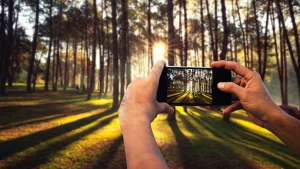
Hunting is considered as an outdoor activity that enhances the relationship with nature . The write up shall provide two sides of the points where Hunters must prepare themselves before going .
The various methods of hunting such as Bow , Arrow and Guns will make you feel that hunting is really interesting . As a sport , both of these , bow and arrow and guns give hunting an advantage of winning . In accordance with this , we can observe that Hunters who use bow and arrows or guns should prepare themselves properly to be Hunting specialists . However, Hunters will be ready to hunt after spending time and hard work on their own .
1 : As a hobby , taking part on hunting plays an important role for us to engage in nature .In terms of preparation , We should thoroughly prepare before hunting , since wearing inappropriate clothes , not shooting the right animal may reduce the ability of sports , especially hunting . According to this , Hunters may realise that an inaccurate aim can result in loss of game .
In conclusion , I concur that though Hunters , especially boys might pay attention more to additional things while preparing themselves , it is widely accepted because when we engage in nature , We must prepare seriously with suitable plans .
Learning how to navigate minimises the chance of getting lost – a critical consideration for hunters who strike out into unknown areas. Use your compass, topo map, visual cues – or even more – and make your wilderness adventure a real adventure.
Know Your Limits
The ultimate hunt of a lifetime – or the ultimate slope, or the ultimate goal, for that matter – can be a reality only if you understand your limitations. Limitations include how much it costs, how fast you are allowed to go, perhaps restrictions due to time, possessions, education or physical abilities. Knowing your limitations is another exercise in self-awareness. Realistic goals are less likely to be frustrated when you understand them.
It’s also a good idea to take your child or teen hunting in the spot you plan on going prior to departure: walk the ground, dig yourself into a good hole, register all possible hazards.
Some basic wilderness-navigation skills are useful, too: knowing how to get to your destination, and lay out an emergency bearing – a direction leading towards a large, prominent feature or civilisation – before you go, could make the difference between life and death in the event of a bad outcome.
Make a Plan B
A well-laid plan helps more hunts go off without a hitch, but they can still go sideways in the blink of an eye. That may be as simple as a shift in wind direction – but it could just as easily be a mountain lion wandering into your path. A plan B is something you should have in your bag before you depart for the wilderness to minimise your risk of a lost animal.
Choose your quarry, then plan from there. If you’re going to another state, study the area beforehand. Buy topographical maps, get to know the ground as well as common weather patterns that time of year, check for hunting seasons and lands open to recreation. Plan recreational activities according to the lowest common denominator, and stick to designated trails.
Set Up a Comfortable Camp
Learning how to put together a cozy camp will be the most rewarding skill you could have for hunting trips. You will be spared from the usual duties of camping! You will have complete freedom to relax, read a novel, or look at the night sky in the evening.
Camp location is an important aspect that has significant influence on comfort, safety and hunting successes. This means therefore, that a camp location is not a mere an after thought of a trip, but one has to carefully look at the nature of terrain, length of trip and migration routes of the game in order to settle in place.
Plus, the campground should have nearby water and firewood, and you may want to buy a satellite phone such as a Garmin InReach, so you can let friends or family know about your adventures if you get into trouble.
Know the Rules and Regulations
Make sure to know and appreciate the rules of the specific state in which you will hunt. Licences, tags and more might be required to hunt legally in your chosen destination. Understanding these requirements might prevent you from later shooting a dinger for mistakenly breaking the rules.
It’s also to learn the species you’ll be hunting – different species have different habits and habitats, and you’ll want to ensure you’re using the right guidelines for the wildlife you encounter.
Real-time weather information from the Internet (via LTE) can help inform your route to reduce chances of getting stranded, and supports mapping and real-time navigation when driving through unfamiliar terrain.
Make a List
A conscientious hunter makes every effort to not wind up in this situation in the first place – from knowing the local regulations to preparing the equipment and mapping to finding partners for a trip who share your responsibilities. Being able to break up the trip into individuals responsible for navigation, first aid and camp cooking, for instance, can ensure everyone has a great time and no one winds up hurt or dead because of a hunter’s faults.
If there’s a do-it-yourself (DIY) cast, write a list that corresponds to your species objectives and areas of interest. Then, identify the target by using Google Earth and satellite imagery to discern the landscape, and finally calibrate your expectations by walking the area to locate wild game patterns of activity. You’ll be pleased you did come the season.



